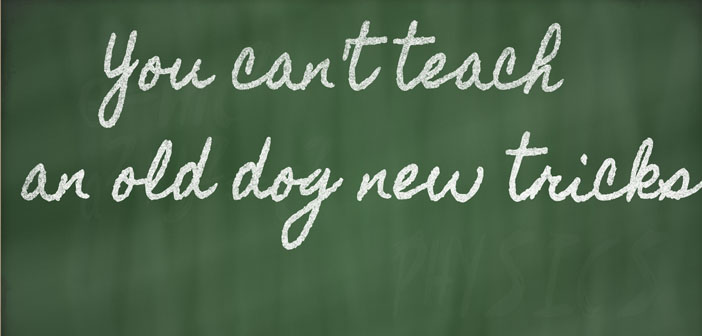Amongst all the valueless content I scroll through on a daily basis on Facebook, occasionally I come across something that actually makes me pause my finger from the ever-impressive swipe I have become so competent at. Just like this one that was floated past me the other day…
Shoshin is a concept meaning ‘beginner’s mind.’ It refers to having an attitude of openness, eagerness, and lack of preconceptions when studying a subject, even when studying at an advanced level, just as a beginner in that subject would.
It made me stop and think about how we try and follow this concept in our introductions to a training session. We want to grab the delegates attention and to inspire them to read on. We want them to retrieve their virtual notebook from way back in the depths of their memory and open it up with a fresh pair of eyes knowing how the new training will add to their knowledge. This is always more easily achieved, I think, when you are teaching content where the learner is considered to be still on the journey towards becoming ‘consciously competent’ and can quickly see the benefits of the additional knowledge or how the different approach will help them. It is much harder when you are trying to teach an ‘old hand’ who is already successful with their current methods.
Recently, I was asked to put together a proposal for a Management Development Programme. The content is to focus on – coaching, communication skills and the legalities of managing individuals. The company want a development programme that accommodates their emerging talent, their new managers and also, experienced managers. For the first two categories, I initially used my virtual notebook to outline the different sessions. I relied on my knowledge and experience of delivering similar programmes to come up with the content that would meet their needs.
I was using my beginner’s inquisitive mind, but with my experienced eyes
When it came to the experienced managers, however, I found myself going around in circles. It wasn’t because my virtual notebook was empty but more because I couldn’t see the output of their learning journey. I knew what the output of the individual sessions would be, what skills and knowledge they would offer the experienced manager the opportunity to acquire, but I could not clearly see how completing all the individual pieces of learning would actually add to their ability to carry out their role effectively. After repeatedly writing possible content and then crossing through, I went back to the books that I had used to create my virtual notebook. Over time, we all become very adept at coming up with a solution without following the same steps that we learnt as a beginner. This time, instead of trying to learn the new skill or acquire new knowledge, I was reading to identify the steps or parts of the skill I was overlooking with experience. I was using my beginner’s inquisitive mind, but with my experienced eyes.
Typically, it is the first step in a process that tends to go by the wayside. Take for example the humble observation, how many still sell the benefits observation to the colleague being observed before commencing? How many still conduct a pre-brief to establish what parts of the observations the colleague would like to coach to play special attention too? And sadly, how many of us still remember to begin the feedback process with praise instead of going straight into the ‘˜what you need to do better next time’ speech. Missing out on a key step, whether it be at the beginning, middle or end of a process can lead us to head dangerously towards the ‘unconsciously incompetent’ zone all too quickly.
Using my ‘beginner’s mind’ helped me to find the way to present the content that they would already be familiar with, but to focus on the parts of the process that may have fallen unconsciously to the wayside. I moved away from the virtual notebooks fixed idea of how communications skills should be broken down into listening, verbal and non-verbal, and thought about how old knowledge and skills could be repackaged into an accelerated learning piece that was relevant to their level. They would still be studying coaching, communication skills and the legalities of managing individuals, but the approach would be different and more appropriate to their level of experience. Once I had decided that, the training session’s outlines flowed from my fingers to the keyboard.
We are all guilty, well I most certainly am, of wanting to explore the latest theory or technique. Inevitably they are a mishmash of tried and tested methods repackaged into a glossy new presentation. So, next time you are tempted to pick up one of those new presentations, maybe instead you should simply try going back to those that helped you build your virtual notebook of knowledge, skills and expertise, and simply look at it with a ‘beginner’s mind’.




